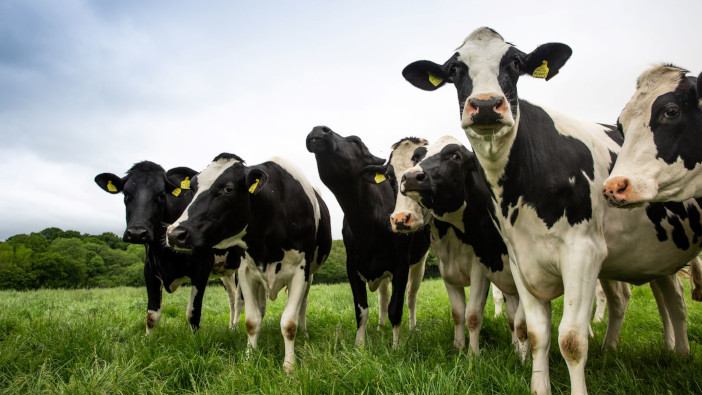A new survey by KW Feeds has shown that British beef and dairy producers prioritise animal health ahead of milk and beef prices. While price came a close second, animal happiness was also ranked as one of the most important care factors.
Based on the average responses, cow health was the most important factor for dairy farmers (18%), ahead of the milk price (15%) and cow happiness (14%). Beef producers scored similarly, with animal health (20%) ranking ahead of beef price (16%) and animal happiness (16%).
“What this survey reveals, is that refreshingly our farmers are recognising the direct correlation between a healthy, happy herd, and a profitable herd,” said KW Feeds ruminant technical manager Georgie Croxford.

The survey was commissioned to understand attitudes towards the herd, as well as feeding and feed strategies, but also revealed how environmental considerations are becoming more important.
81% of respondents said that the origin of feed and the carbon footprint was important, with 95% saying they try to buy British where possible.
This is despite 66% not being required to meet sustainability targets or environmental goals as part of their contract. Only 50% are currently being asked to measure the carbon footprint via audit requirements, mainly by milk processor assessments.
The results showed that 85% of dairy farmers incorporated grazing into their feeding system and, similarly, most beef farmers grazed within the lifecycle of the animal. As such, the feedstuffs used on farm were similar, with dairy farmers feeding compounds (78%) and blend (59%), while beef farmers mainly fed straights (60%).
Most respondents (74%) were not planning to change their current feeds, despite increasing costs, however, nearly half (47%) said that they wanted to use more grass and forage.
Ms Croxford warned that the long, dry summer has resulted in tight forage supplies and variable quality. “Forage does need to be supplemented with minerals, energy and protein sources,” she said.
“British co-products, for example, such as rapeseed expeller NovaPro and Vivergo wheat distillers, can help improve protein utilisation and enable producers to make the most out of rations based on forage or grass silage.”
Ms Croxford concluded: “It has never been more important to maximise farm efficiency, and one way to do so is to make the most of forage. Investing in the right complementary feeds will have a bigger positive impact on margins, than trying to cut costs with cheaper or less feed.”


